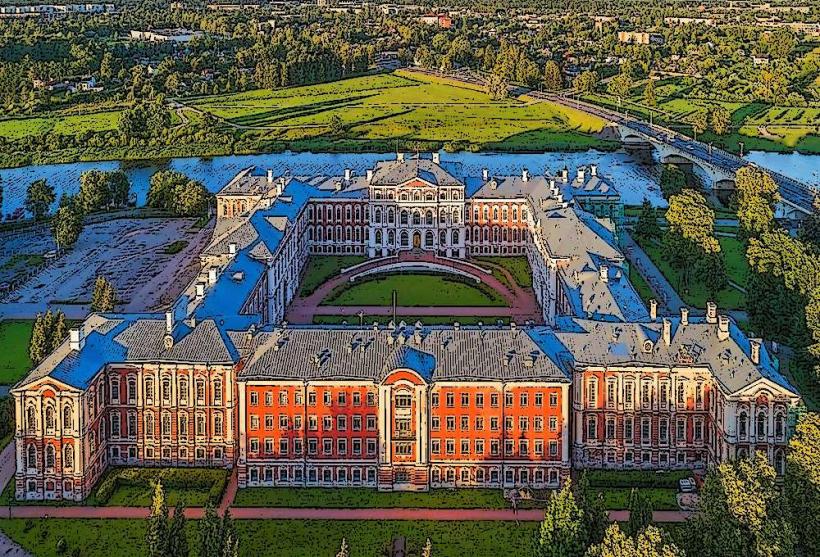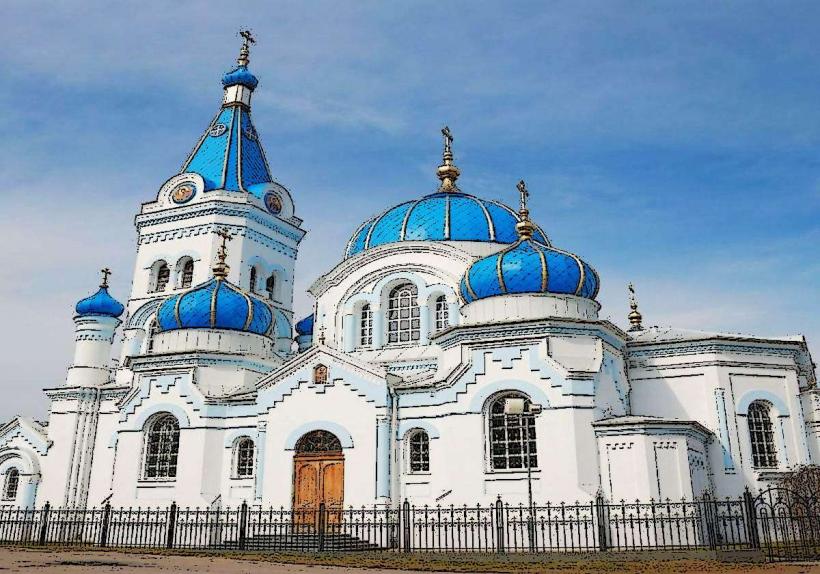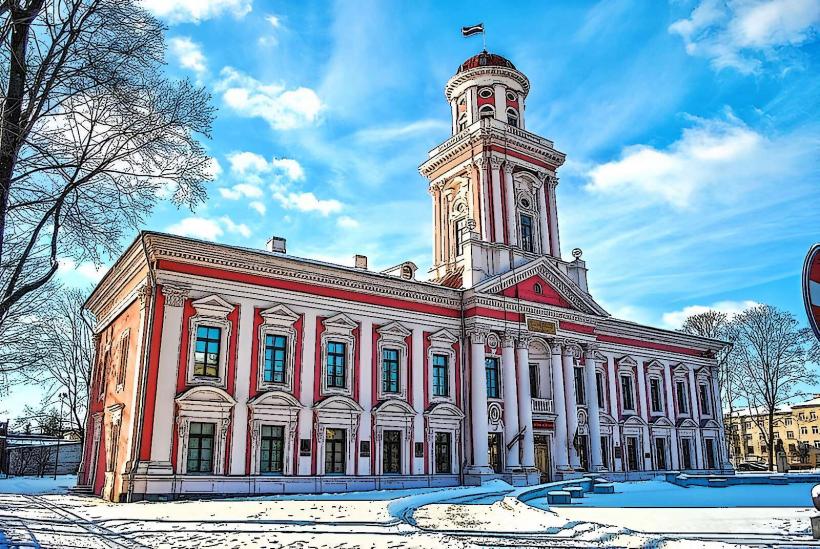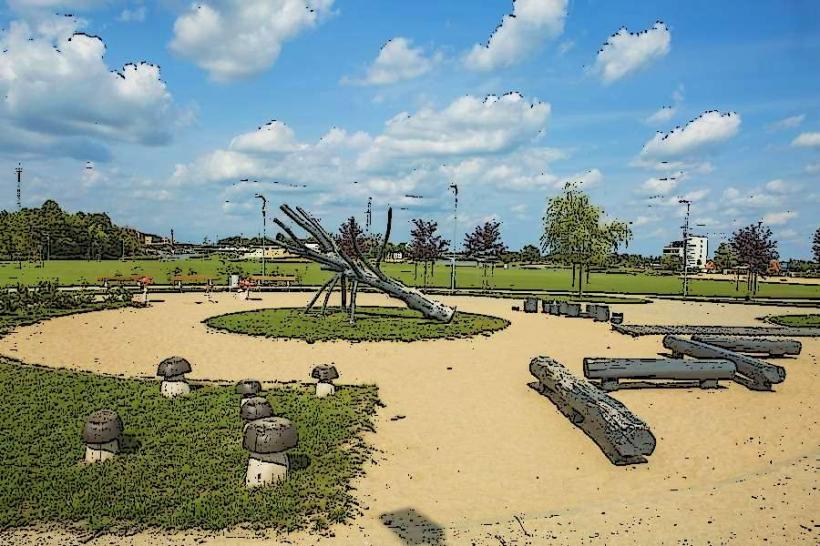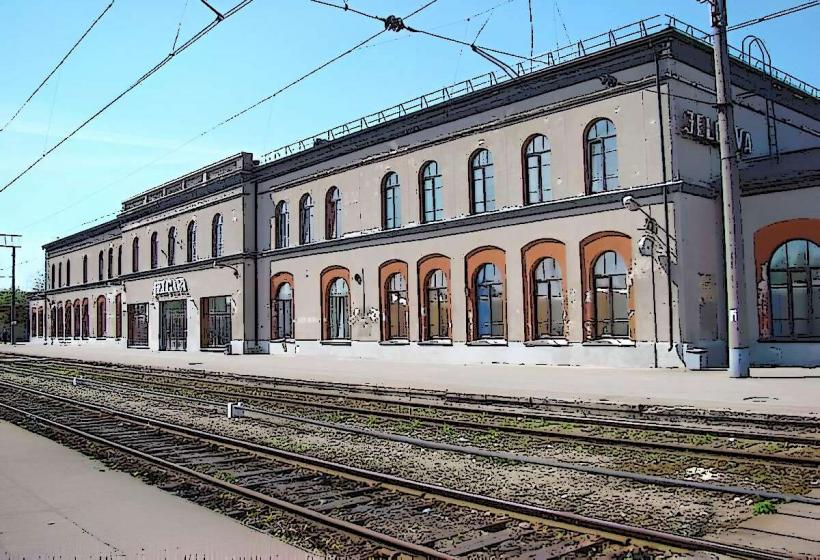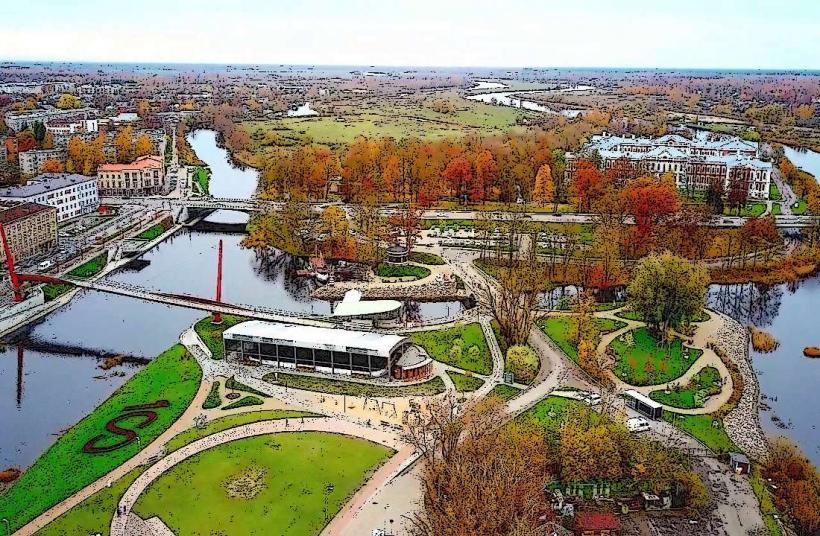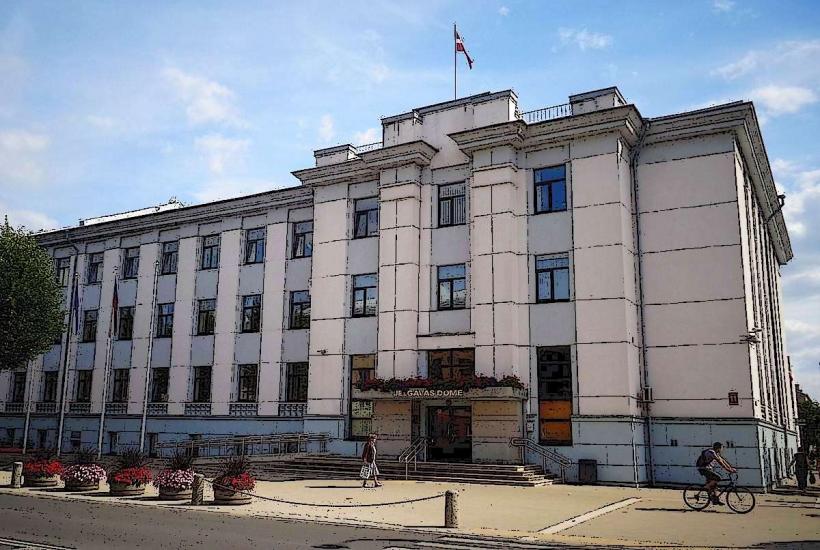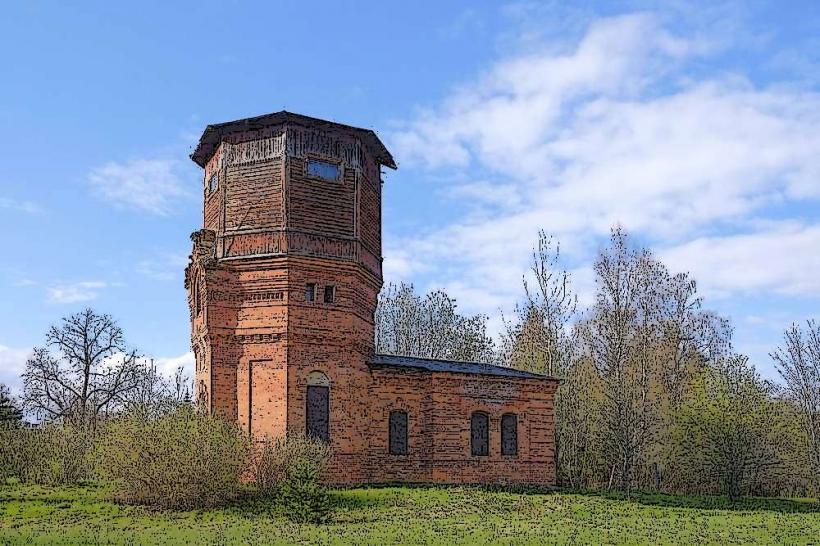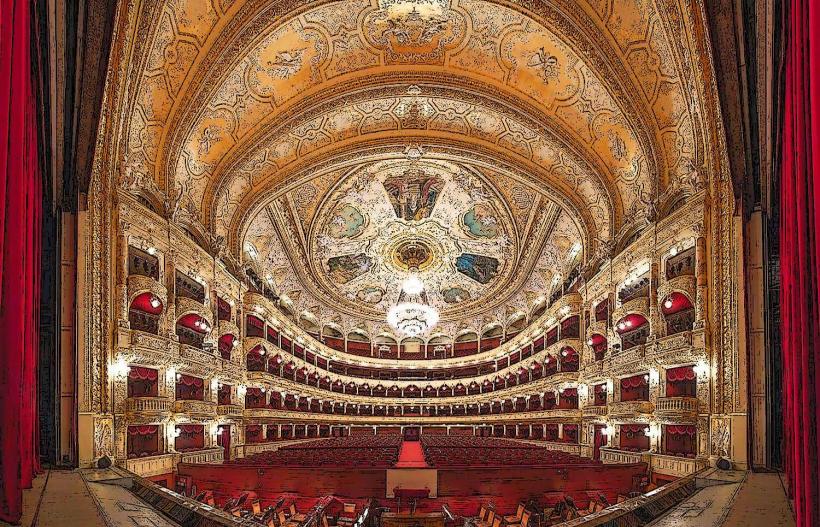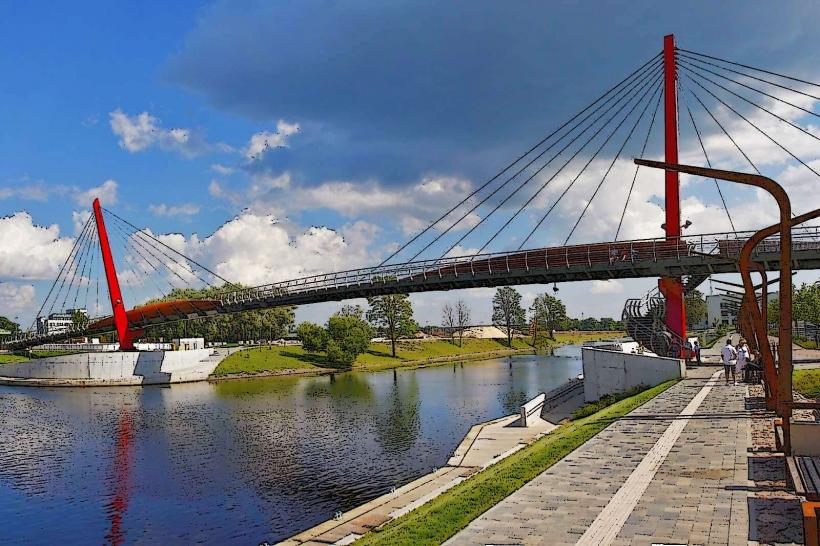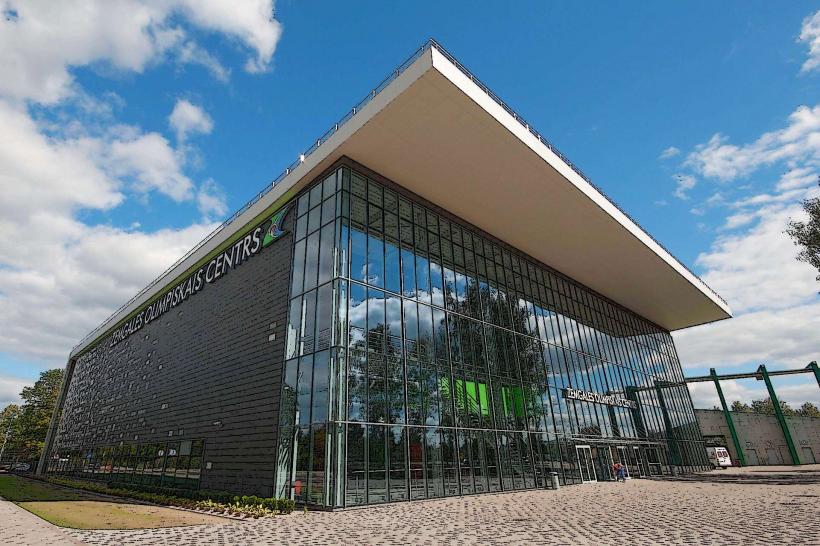Information
City: JelgavaCountry: Latvia
Continent: Europe
Jelgava is a city in southern Latvia, located about 41 kilometers (25 miles) southwest of Riga, the capital of Latvia. It is one of the oldest cities in the country, rich in history, culture, and architecture. Known for its baroque architecture, historical landmarks, and picturesque surroundings, Jelgava is often considered a gateway to the Zemgale region, an area historically important for agriculture, trade, and royal estates.
Geography and Setting
- Location: Jelgava is situated at the confluence of the Lielupe River and the Musa River, which provide a scenic backdrop for the city. The city is surrounded by flat agricultural land, typical of the Zemgale region, making it an important center for Latvia's agricultural production.
- Climate: Jelgava has a temperate continental climate, characterized by cold winters and mild to warm summers. Winters can see snow and temperatures dropping below freezing, while summers generally bring pleasant weather with temperatures ranging between 15°C to 25°C (59°F to 77°F).
History and Significance
- Early Beginnings: Jelgava’s history dates back to at least the 13th century, with the city being founded as a Livonian stronghold by the Livonian Order in the 1200s. The town has a strong historical connection with the Duchy of Courland and was an important center of trade and culture during this period.
- Duchy of Courland: In the 17th century, Jelgava became the capital of the Duchy of Courland and Semigallia, one of the most influential states in the Baltic region at the time. The Courland nobles ruled the area from Jelgava and made it an important cultural, economic, and political center.
- Russian Empire: In the 18th century, the city fell under the control of the Russian Empire. It continued to grow under Russian rule, and many of the city’s major buildings were constructed during this period, including the Jelgava Palace.
- Modern Times: Jelgava became part of independent Latvia after World War I and later was occupied during World War II. Today, Jelgava is a key city in Latvia, known for its role in agriculture, education, and culture.
Key Attractions
Jelgava Palace:
- The Jelgava Palace, originally built in the 18th century as a residence for the Duke of Courland, is one of the most important architectural landmarks in the city. Designed in the Baroque style by the famous architect Bartolomeo Rastrelli, it served as a royal palace before being repurposed as the headquarters of the Russian Imperial Army and later, a university.
- The palace now houses the Latvian University of Agriculture, and its grand interiors and well-maintained park are open to visitors. The palace also features an impressive Botanical Garden.
St. Anna's Church:
- St. Anna's Church, one of the oldest churches in Jelgava, is a significant architectural and cultural monument. The church was originally built in the 18th century and is an example of Baroque and Rococo styles. The church is notable for its spacious interior, beautiful altar, and historical importance in the region.
Jelgava History and Art Museum:
- The Jelgava History and Art Museum showcases the city’s rich historical and cultural heritage. Exhibits include archaeological finds, displays on Jelgava’s role in the Duchy of Courland, and Latvian art, with a focus on local artists. The museum provides a deeper understanding of the city’s history, from its medieval origins to modern times.
Academy of Sciences Building:
- The Academy of Sciences Building in Jelgava is another notable example of the city’s architectural history. It was originally built as a city hall but later became the home of the Latvian Academy of Sciences.
Dendrological Park:
- The Dendrological Park located near the Jelgava Palace is a lovely green space filled with diverse species of trees and plants. The park is especially beautiful during the spring and summer months when it is in full bloom.
Bērzes Street:
- Bērzes Street is one of Jelgava’s oldest and most picturesque streets, lined with historic houses and buildings. Walking down this street provides visitors with a glimpse into the city’s past and is a great place to explore the local architecture.
Jelgava Bridge:
- The Jelgava Bridge, spanning the Lielupe River, is a significant piece of infrastructure and a symbol of the city. The bridge has been rebuilt several times since its original construction in the 19th century and offers panoramic views of the river and surrounding area.
Culture and Lifestyle
- Local Festivals and Events: Jelgava hosts a variety of cultural and traditional festivals throughout the year, with the Jelgava City Festival being one of the largest. This event, typically held in the summer, features music, dance, and arts performances, along with fairs and markets showcasing local crafts and foods. Other notable events include the Jelgava Winter Festival and the Folk Music and Dance Festival.
- Traditional Cuisine: Jelgava, like much of Latvia, offers traditional Latvian cuisine, including hearty dishes such as grey peas with bacon, potato pancakes, and rye bread. The city’s restaurants and cafes serve local dishes alongside international options, providing a variety of tastes for visitors.
- Education and Research: Jelgava is home to the Latvian University of Agriculture, one of the oldest and most respected institutions in Latvia for agriculture, forestry, and environmental science. The university is an important part of the local economy and cultural life, contributing to research in various scientific fields.
Outdoor Activities
- Cycling and Hiking: Jelgava is surrounded by flat countryside, making it a great place for cycling and hiking. There are several local routes for exploring the Zemgale region, particularly along the Lielupe River. The nearby Gauja River also offers recreational opportunities like kayaking and fishing.
- River Cruises: The Lielupe River is an important waterway in the area, and visitors can take river cruises to explore the region’s natural beauty. Cruises often provide scenic views of the surrounding countryside and Jelgava’s historic buildings.
Transportation
- By Car: Jelgava is easily accessible from Riga via the A8 and E77 highways, with a travel time of approximately 45 minutes.
- By Train: Jelgava is well-connected by rail to Riga and other Latvian cities. The Jelgava railway station offers regular services to Riga, with travel times of around 40 minutes.
- By Bus: Jelgava also has a bus station with regular connections to Riga and other cities in Latvia.
Atmosphere
- Quiet and Historical: Jelgava maintains a quiet and relaxed atmosphere, with a strong focus on its historical roots. It is far less touristy than the capital city, making it an ideal destination for those seeking a more peaceful and authentic experience of Latvian culture and history.
- Charming and Scenic: With its riverside location, green spaces, and historical buildings, Jelgava is a charming town that offers a mix of old-world charm and modern living. The peaceful streets, elegant architecture, and serene parks create a pleasant environment for visitors and residents alike.
In summary, Jelgava is a city with a rich history, stunning architecture, and beautiful natural surroundings. Whether you’re interested in exploring its historical landmarks, enjoying outdoor activities in the Zemgale region, or experiencing local Latvian culture, Jelgava offers a peaceful and rewarding experience for visitors.

